Materialism: A Materials Science Podcast
In this podcast, Taylor and Andrew investigate the past, present, and future of materials science and engineering. Topic areas ranging from cutting edge materials technology, the history of different materials, the commercialization of new materials, and exciting advances in processing and characterization are all covered in detail. Our episodes include things like the unlikely discovery of superglue or teflon, the fascinating backstories about modern biomaterials like dialysis filters, and updates on new technologies including wearable electronics, next generation batteries, and nanomaterials. In short, we hope to help listeners understand the critical role that materials have played in society and even...
Glass Science with Schott
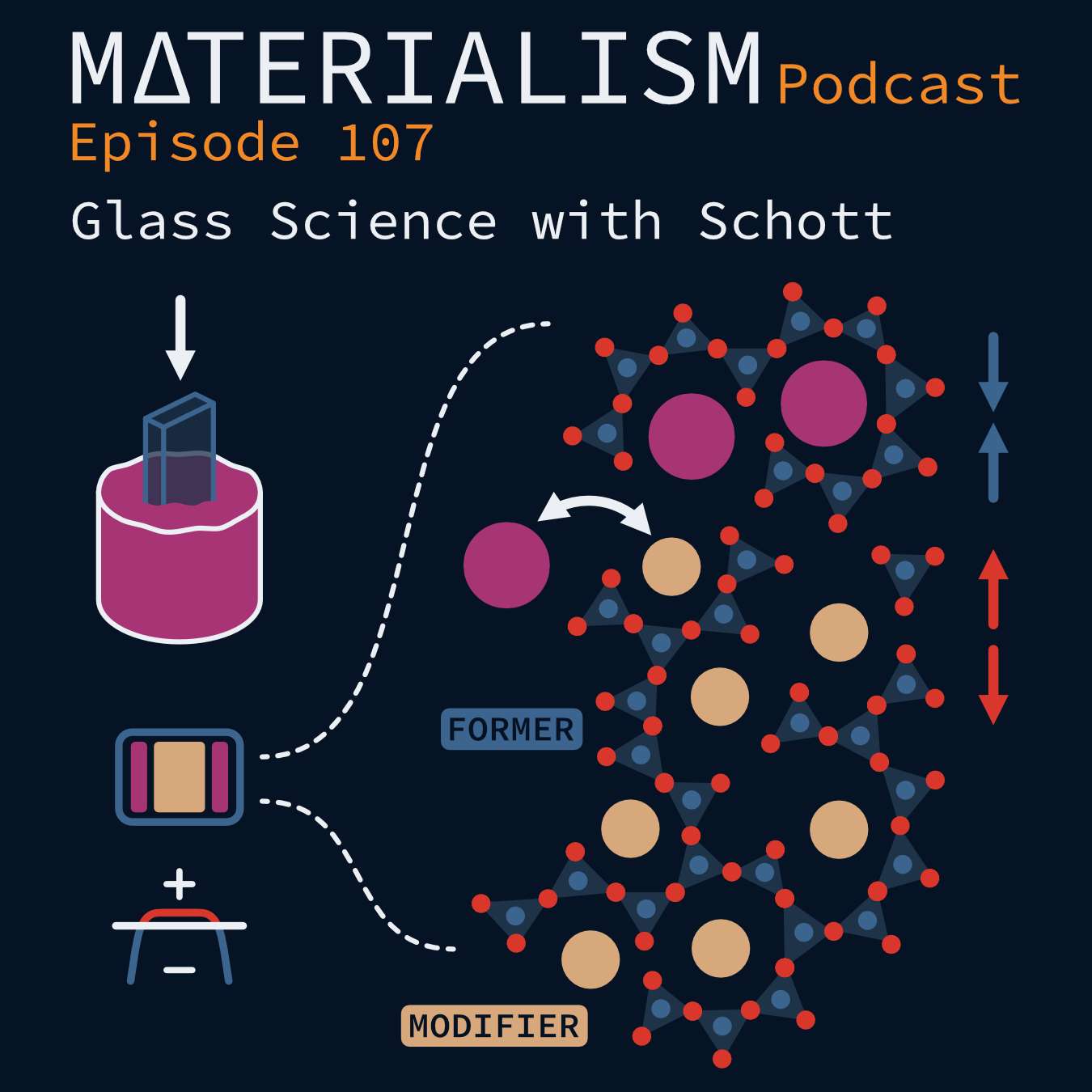
Glass is all around us but you may not spend much time thinking about it's history and advancements. In this episode we sit down with Colin Schmucker and Dr. Sebastian Leukel from SCHOTT AG to discuss this common but fascinating material. From naturally occurring glass formed by lightning to stained glass windows in cathedrals, glass has been apart of human history forever. We explore some of the advancements that helped make glass more versatile for use in cookware and cell phones.
This episode was sponsored by SCHOTT AG, you can find more about their products at this...
Photoluminescent Materials
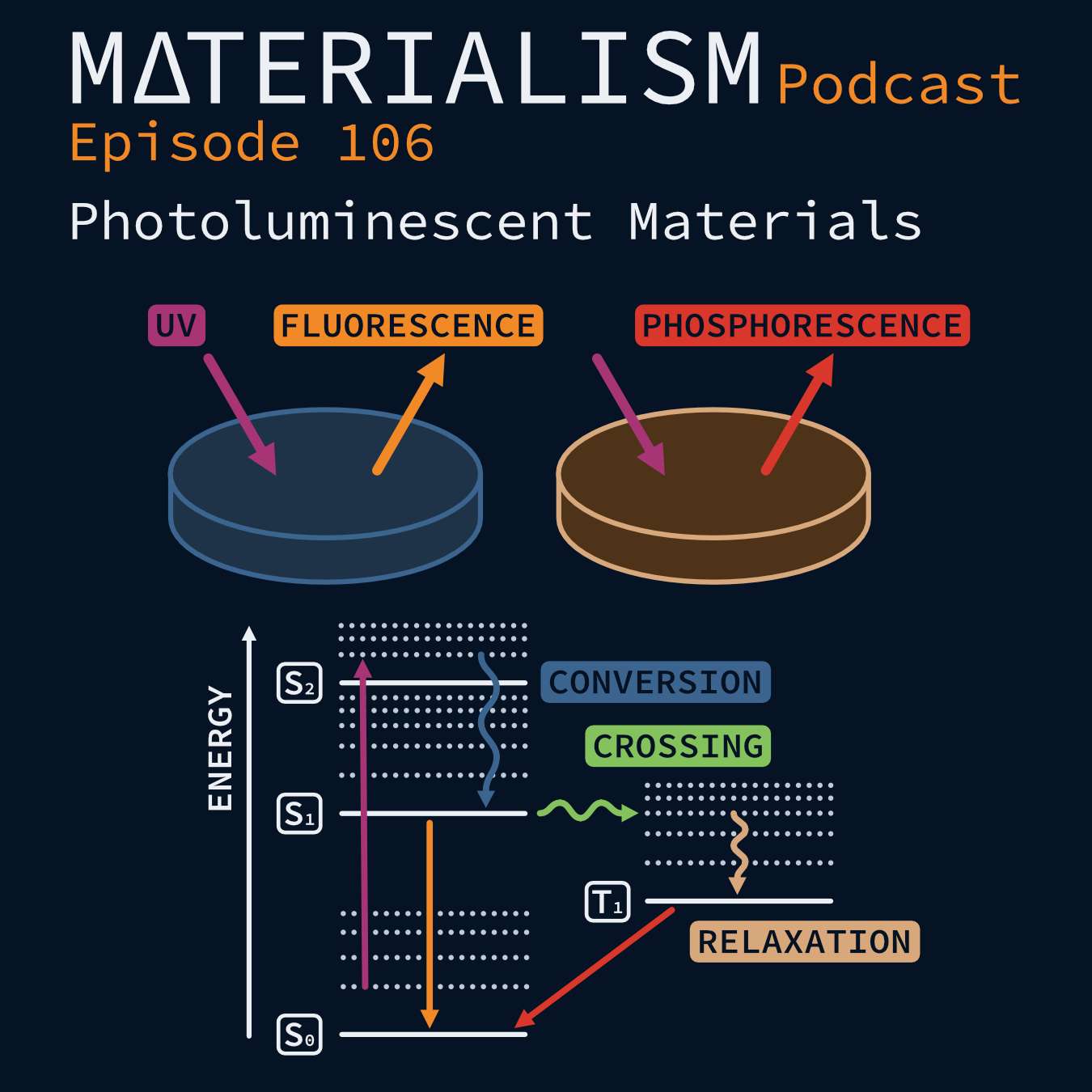
From glowing plastic stars on bedroom ceilings to quirky novelty items, most of us have encountered the magic of things that shine in the dark but what’s really behind the glow? Andrew and Taylor dive into the science of photoluminescence, breaking down the physics of how it works and the materials that make it possible. Join them as they explore the two main glow-in-the-dark methods—phosphorescence and fluorescence—and reveal what makes each one shine.
This episode of the Materialism Podcast is sponsored by the American Ceramics Society. Check out the ACerS learning center with over 20+ On-Dem...
Cooling Paints
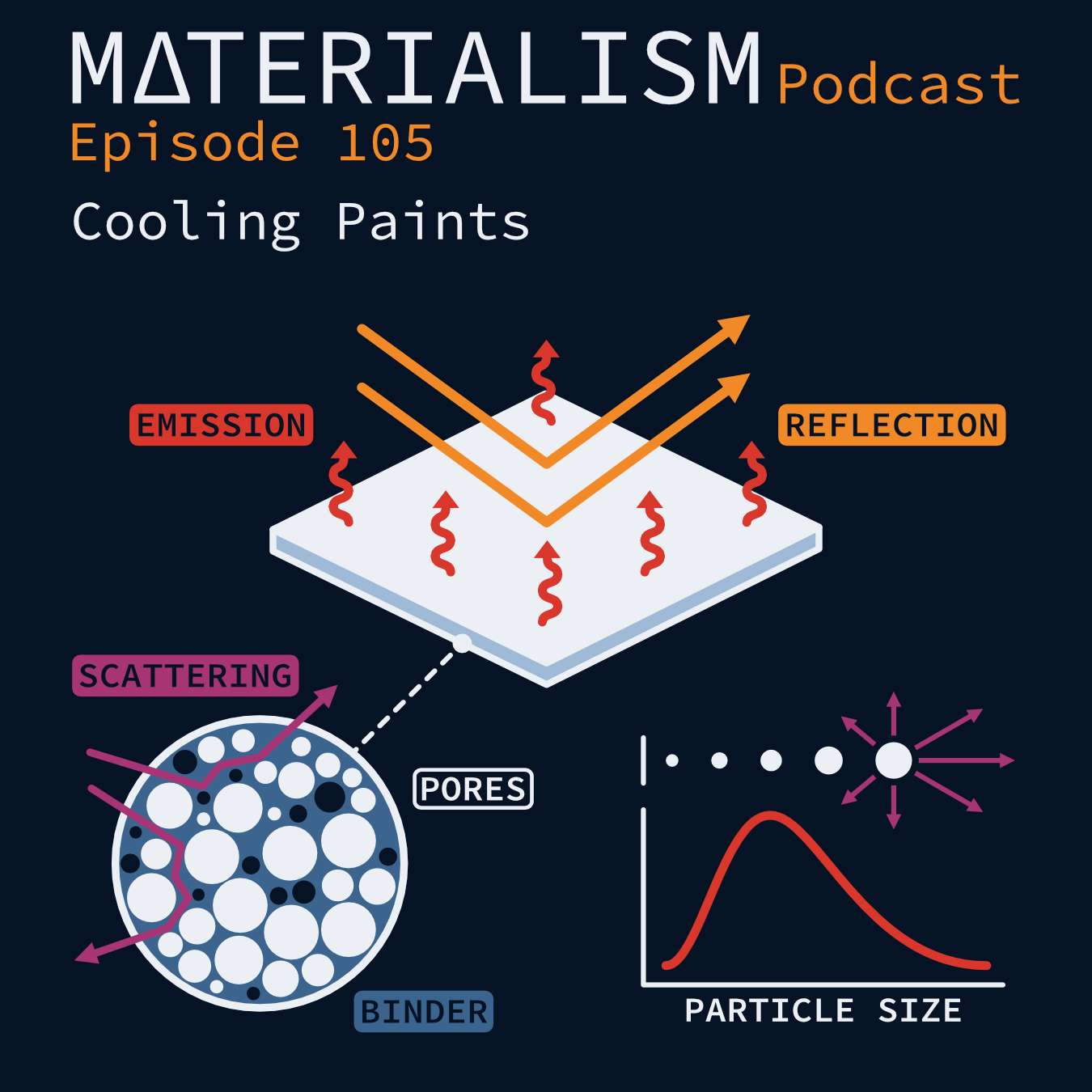
Just because the temperature is rising doesn’t mean your electric bill has to. Introducing cooling paints: Jared and Andrew discuss how painting your house with specialized coatings can noticeably reduce the temperature. We dive into the physics behind these paints and the materials that make them possible. We explore topics ranging from common pigments to health concerns over VOCs and Nanoparticle inclusion.
The Materialism Podcast is sponsored by the American Ceramics Society. Visit them, at this link [HERE] to unlock full access to the Bulletin with a free ACerS membership.
This Materialism Podcast is sp...
The Winding Path to Materials Discovery
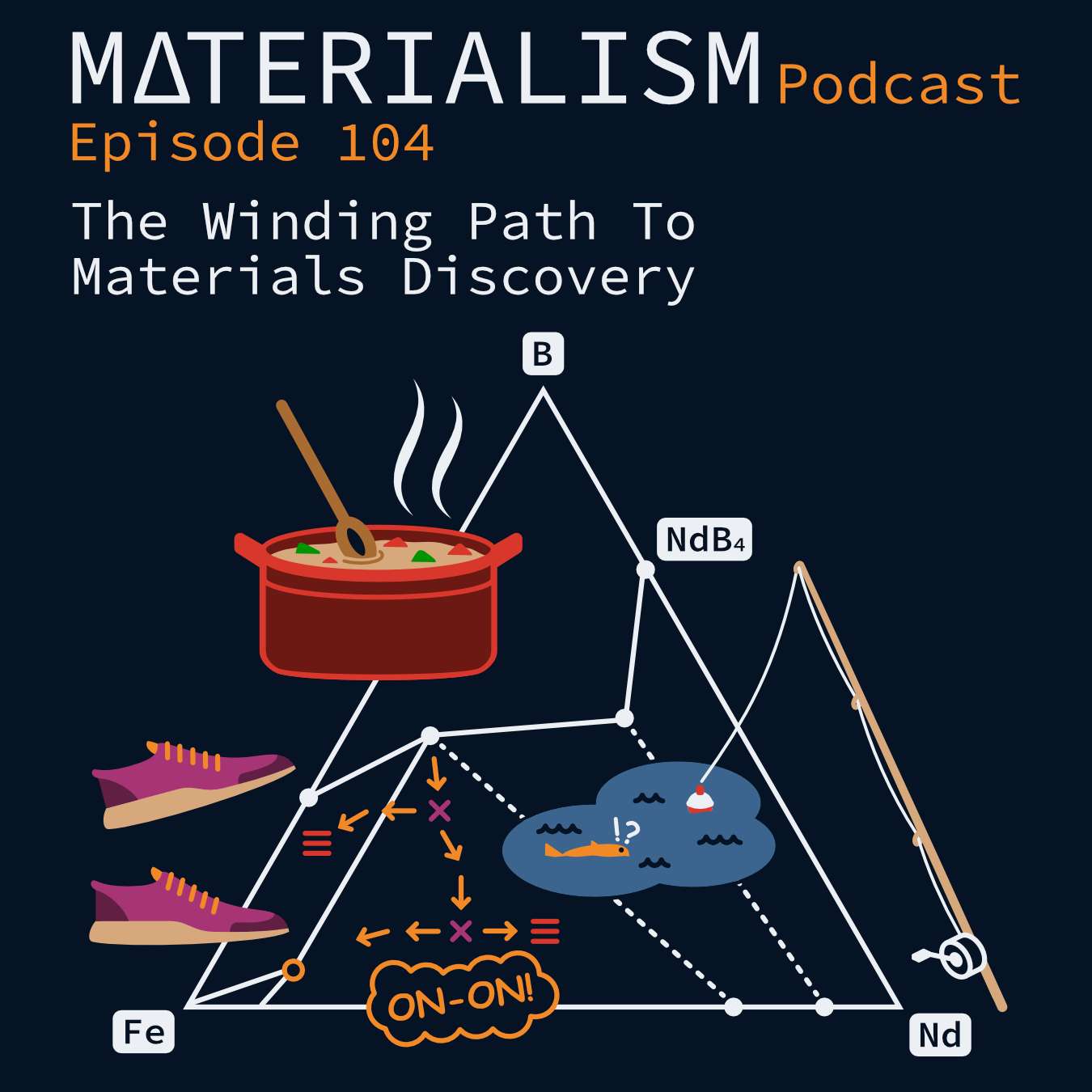
Few things in materials science are more interesting and rewarding than discovering new materials. In this episode, Taylor and Andrew sit down with Paul Canfield, a physicist from Ames Laboratory to discuss materials discovery—and the creative ways he writes about it. From cooking metaphors to "shaving the dice" to beat nature, they dive into the colorful word choice he uses to bring his work to life..
This episode of the Materialism Podcast is sponsored by the American Ceramics Society. Check out the ACerS learning center with over 20+ On-Demand Courses on topics such as the fundamentals, research, ma...
MatterGen
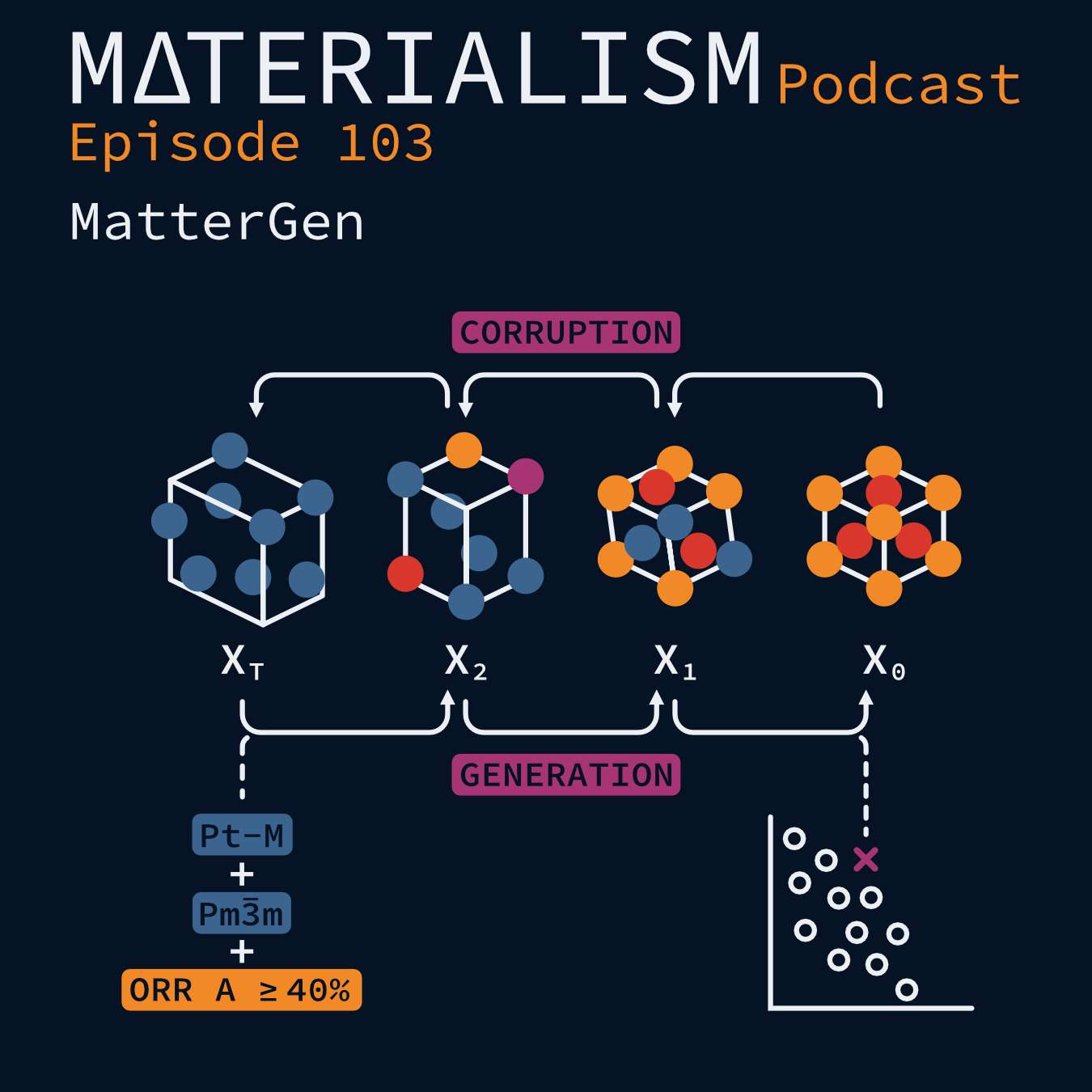
What if you could find materials with tailored properties without ever entering the lab? We sit down with Tian Xie from Microsoft to discuss their new AI tool MatterGen. We learn all about what the tool does and the tests they put it through to validate the output. We also discuss the new Azure AI Foundry where they plan to have MatterSim and MatterGen interact and support each other.
This Materialism Podcast is sponsored by Materials Today, an Elsevier community dedicated to the creation and sharing of materials science knowledge and experience through their peer-reviewed journals, academic...
Integrating Materials and Manufacturing Innovation
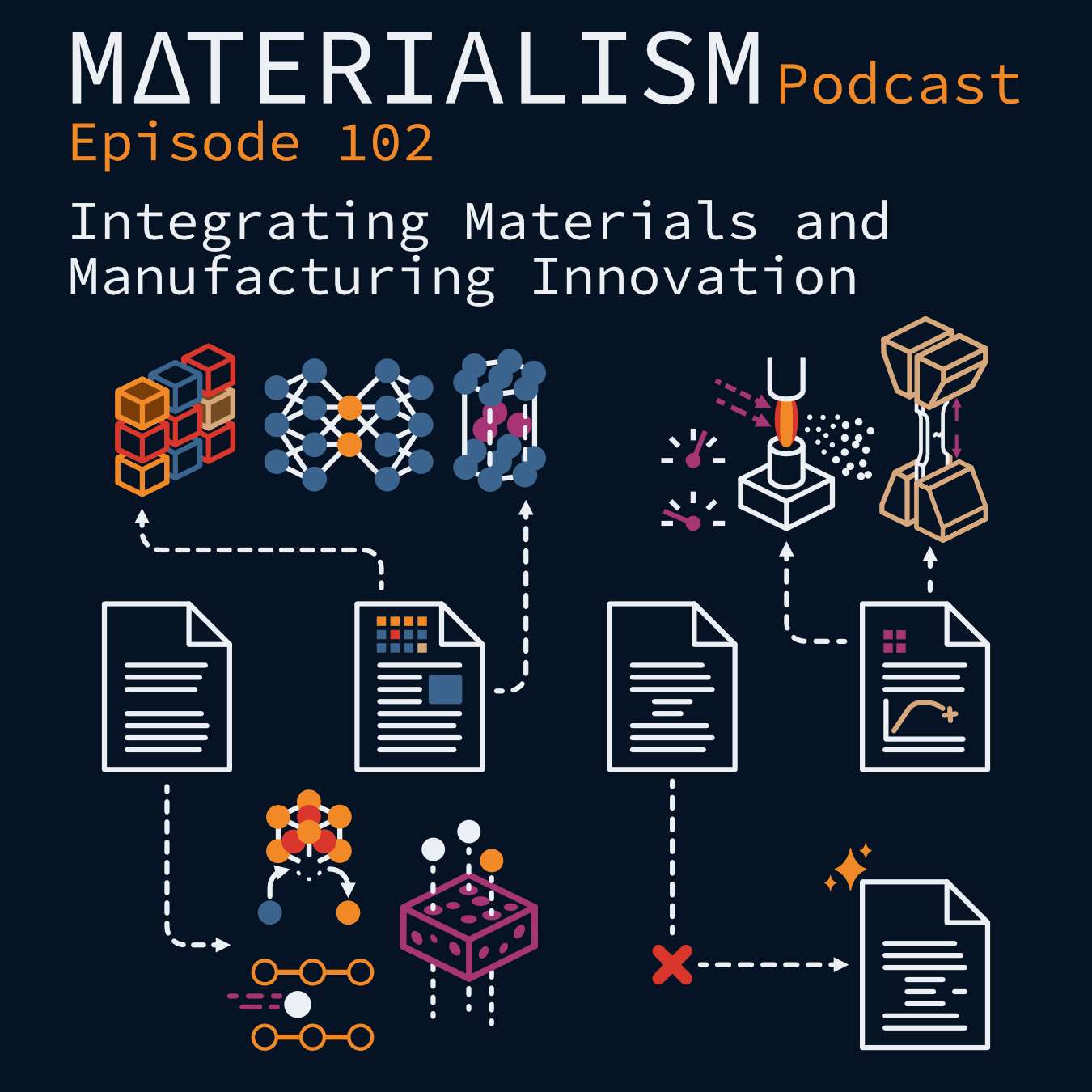
Have you ever read a published paper and wished you had access to the raw data? The journal Integrating Materials and Manufacturing Innovation (IMMI) seeks to solve that issue. Taylor, the current Editor-in-Chief, sits down with Chuck Ward( Previously Chief of Manufacturing and Industrial Technologies at AFRL and outgoing Editor-in-Chief at IMMI) to discuss how IMMI is different from other journals. They cover the history of IMMI, the use cases of the journal, and also some exciting news about Taylor and his position with the journal.
This Materialism Podcast is sponsored by Materials Today, an Elsevier community...
All About Biomatter
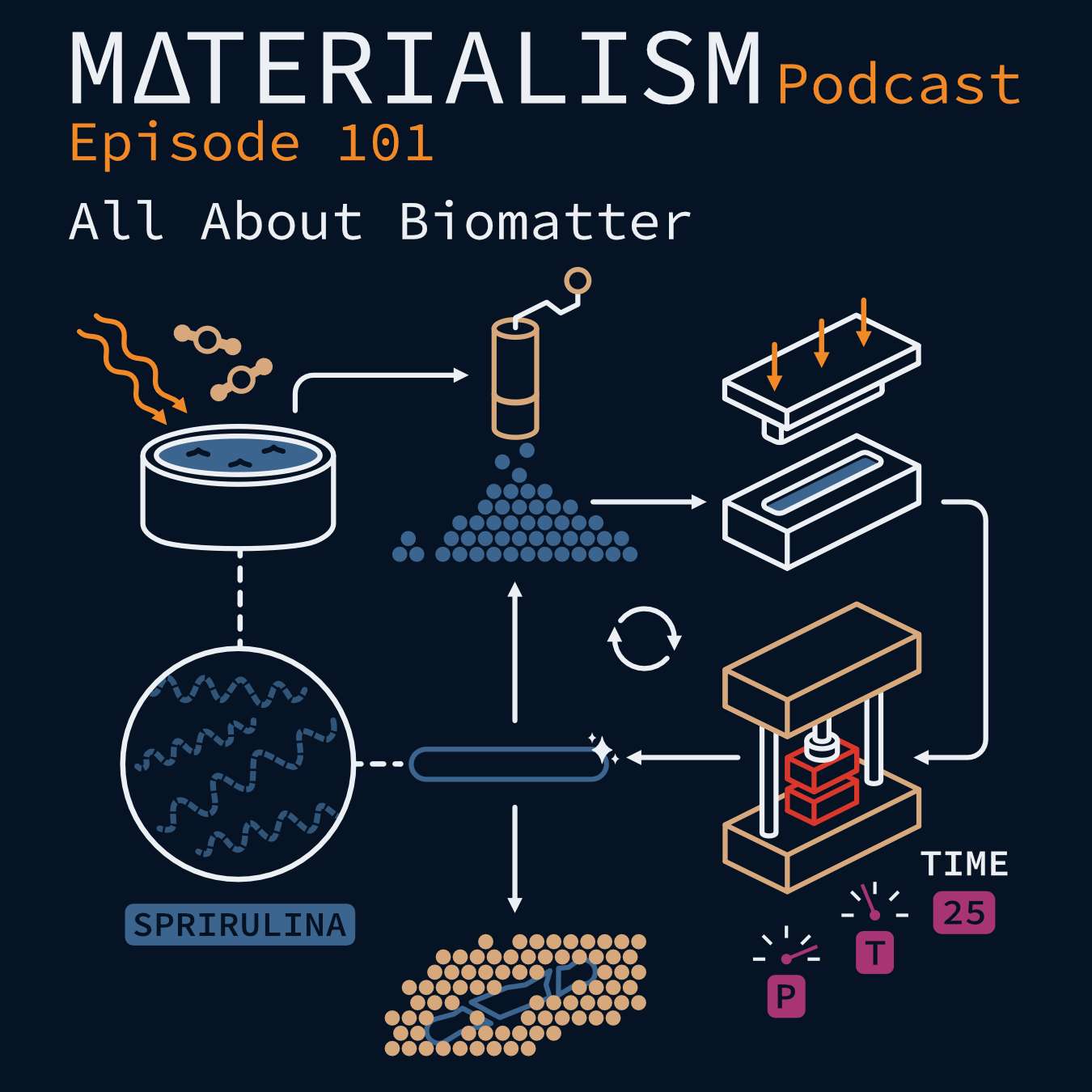
How do we turn plants into plastics and polymers? Find out in this episode as Taylor leaves Utah and ventures to Washington to sit down with Eleftheria Roumeli, an assistant professor at the University of Washington and researcher in the field of biomatter. Learn all about how a fish tank full of "gross" bacteria can be used to create complex and surprisingly strong shapes or about how Eleftheria's research group forages around local shores for seaweed to get the necessary biological materials. Finally we cap it off with a discussion about the environmental impact these materials have and how...
Materials for Bikes
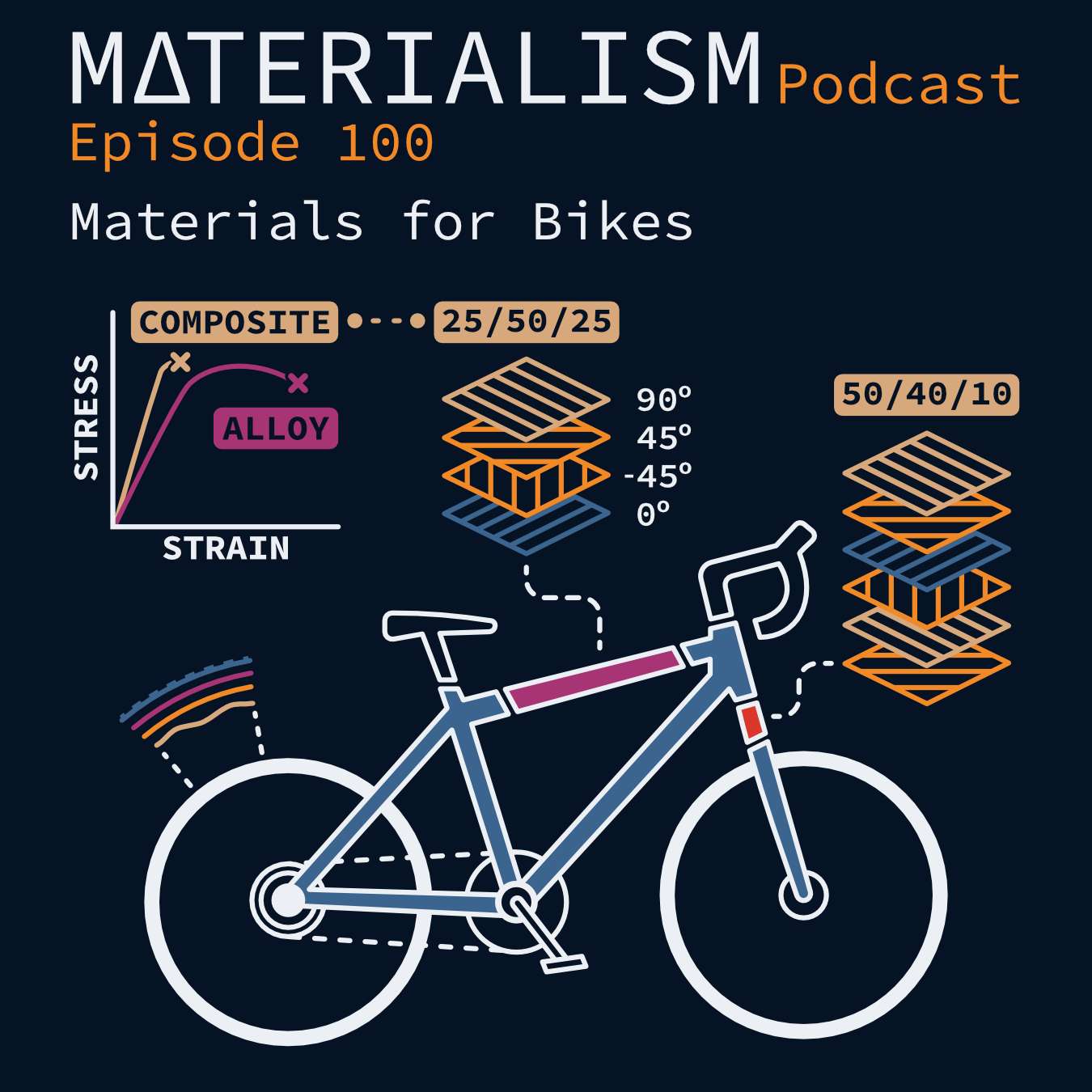
From antelope skin chains to full beryllium frames its safe to say bikes and the materials that make them have a fascinating history. Join us as we celebrate episode 100 and dive into the materials science behind this beloved mode of transportation. Starting at the invention of the first bike due to a massive volcanic eruption to the specialty bikes more expensive than a car. We break down the materials of the past that have been used to make bikes, such as wood, steel, aluminum, and even bamboo. As well as examining the materials propelling biking into the future such...
Bulk Metallic Glasses
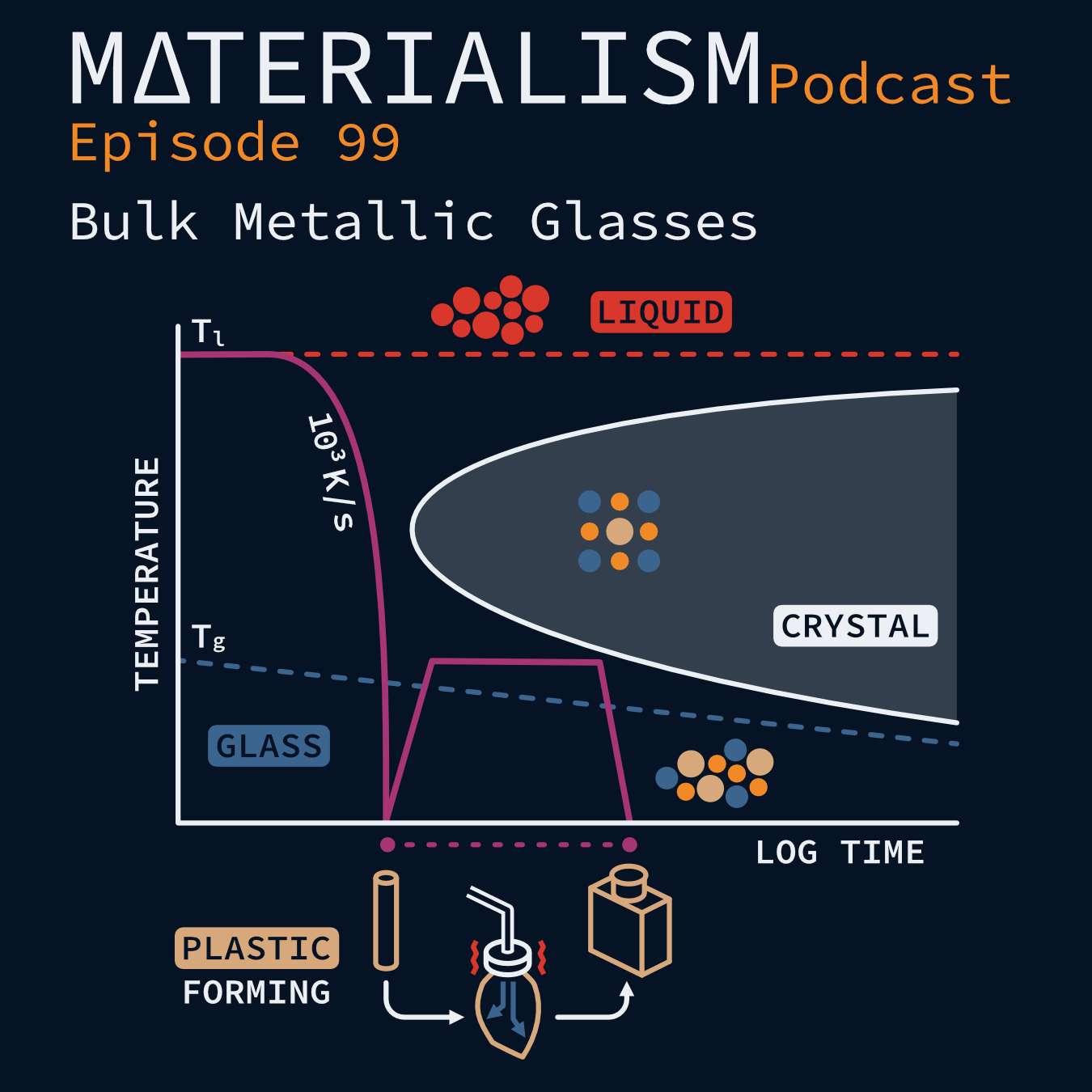
How does a metal become a glass? By cooling on the order of 10^6 K/s. We sit down with Jan Schroers, a professor of engineering at Yale to discuss the exciting world of bulk metallic glasses. With over 20 million different combinations these materials are incredibly versatile and have strength numbers on par with ceramics. Also their thermoplastic forming enables metals to be formed into shapes previously thought impossible. These materials truly are a game changer and are definitely worth learning about.
This episode was sponsored by Radical AI. Be sure to check out their website to see...
Accelerating Catalyst Research with Meta
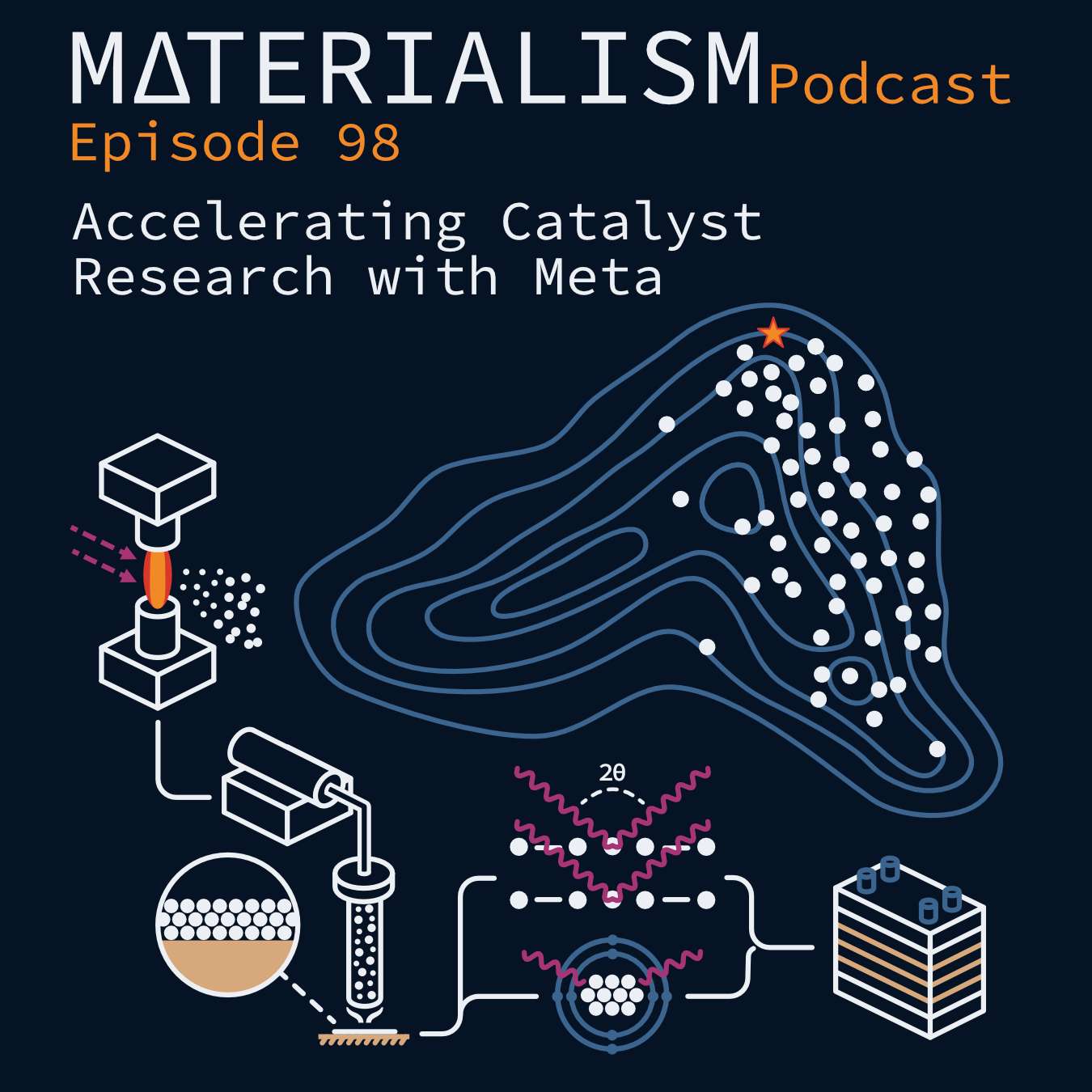
What brings a social media company into materials science? In this episode, we talk with Larry Zitnick of Meta's Fundamental AI Research (FAIR) and Aaike van Vught from VSParticle about building OCx24, an open catalysis materials database. We discuss the challenges of creating an experimental database from scratch and how autonomous spark ablation devices made it possible. We cap things off with a discussion about how machine learning tools can leverage this database to help us discover new catalysts.
This episode of the Materialism Podcast is sponsored by Meta's Fundamental AI Research You can find more info...
Titanium

What do a Mach-3 aircraft and a hip replacement have in common? They are both made of titanium. In this episode we dive into this incredible material from its name rooted in Greek mythology to the unique variants of commercial titanium. Learn about the interesting challenges facing titanium's use in the SR-71 to the new variants being actively researched to help bring this material up to superalloy standards.
This episode of the Materialism Podcast is sponsored by Cal Nano, leading experts in spark plasma sintering and cryomilling technologies. You can learn more about their work and services...
Spark Ablation with VSParticle

At temperatures hotter than the surface of the sun (>20,000K), a revolutionary physics-based process is creating the future of nanomaterials - no chemicals required. We talk to Aaike van Vugt co-founder of VSParticle and an expert in the field of spark ablation. He walks us through the process of coating materials in nanoparticles as well as its various uses. We explore what materials are suitable for the method and their pivot into nanoporous films.
The Materialism Podcast is sponsored by American Elements, a leading manufacturer and supplier of materials. You can learn more about their work and...
You Don't Know Anything About Steel

You probably think you know a lot about steel, you couldn’t be more wrong. In this episode we sit down with Caelan Kennedy from the Steel Founders’ Society of America to discuss the intricacies of steel. From tuning properties by using different elements in the alloy to the confusing naming conventions. This episode will help expand your knowledge about a material you thought was pretty simple.
The Materialism Podcast is sponsored by American Elements, a leading manufacturer and supplier of materials. You can learn more about their work and services by visiting their website.
This...
An Introduction to Quantum Materials

Quantum isn't just a buzzword used in the movies. In this episode we are joined by Jason Khoury, Assistant Professor at Arizona State University, he helps explain the key concepts necessary to understand the basics of quantum materials. We discuss the origin of quantum behavior including interactions between charge, spin, orbit and lattice. From the serendipitous discovery of high-temperature superconductors to the theoretical predictions of exotic quantum behaviors. This conversation will provide the foundational knowledge needed to better understand the emerging technologies based on quantum materials.
References:
Quantum Materials and Chemistry Review - An in-depth...
An Introduction to Pyrometallurgy

Pyrometallurgy is one of the oldest branches of materials science, yet it is constantly evolving. Join us as we take a broad look at the process of transforming ore into the metals we use every day. From ancient techniques for checking counterfeit coins to cutting-edge innovations like battery recycling, we cover every step of the current process and discuss where the future of pyrometallurgy is headed.
The Materialism Podcast is sponsored by American Elements, a leading manufacturer and supplier of materials. You can learn more about their work and services by visiting their website.
This...
The Quest for Pure Uranium

In this episode, we explore the story of Harley Wilhelm, an unsung hero of the Manhattan Project. Discover how the Ames Process revolutionized the production of pure uranium metal, turning a slow and inefficient task into an streamlined operation that played a critical role in ending World War Il. We'll explore the challenges faced, the science of uranium enrichment, and the surprising uses of depleted uranium. Tune in for a deep dive into one of the lesser-known but vital contributions to history's most ambitious project.
You can buy a copy of the book that inspired this episode...
High Entropy Alloys

A new class of material doesn't show up often. In this episode, we dive into the revolutionary discovery of high entropy alloys (HEAs) that revitalized the field of metallurgy. We dive into their simultaneous discovery at both Oxford and Tsinghua National University. Learn how they break all the typical rules we know. We explore how their composition gives them exceptional strength, hardness, thermal stability, and their superior resistance to corrosion and wear. Discover why HEAs are transforming the materials industry and how their versatility is driving future technological advancements.
The Materialism Podcast is sponsored by American Elements...
The Big Dig Incident

Choosing the wrong material can have dire consequences. In this episode of our failure series, we discuss how the incorrect choice of epoxy led to a catastrophic failure and a tragic death. Discover the series of poor decisions that turned a new highway plan into one of the costliest public works projects ever. Join us as we uncover the lessons learned from this devastating event and the changes it inspired.
Selected References:
The Big Dig: project background [LINK] Control of Epoxy Creep Using Graphene [LINK] Forensic Engineering Applied to Failures in Concrete Polymer Materials [LINK]...
Special Applications of Microscopy Technologies

Electron microscopy is almost a century old, but it continues to play a role in exciting new developments that extend its use well beyond its original purpose. We sit down with Professor Sergei Kalinin from the University of Tennessee-Knoxville to discuss these exciting new applications of this older technology. Learn how electron microscopy, originally developed for imaging, is now used for atom-by-atom materials fabrication. We also explore how combining this technology with machine learning can streamline scientists' work.
This Materialism Podcast is sponsored by Materials Today, an Elsevier community dedicated to the creation and sharing of materials...
Accelerating Materials Discovery with Microsoft

The discovery of new materials is an immense challenge, with a vast design space and numerous success criteria. Microsoft has recently demonstrated an advanced approach to machine learning-assisted material discovery, particularly in the realm of lithium-ion battery electrolytes.
They began by exploring all possible structure types, decorating these structures with various atoms, leading to a pool of millions of candidate materials. The screening process went beyond simple stability checks to encompass a broad range of criteria, including predicted properties, electrode stability, and cost. This was achieved through various layers of filtering, leveraging data from diverse calculations, ranging...
Stories of a Materials Salesman

Designing a great material is only half the battle, now you need to sell it. In this episode we sat down with Dan Wilson from Sintx and took a dive into the surprisingly nuanced world of materials sales and the challenges and pitfalls of marketing materials solutions.
Learn more about Sintx and the great materials they are developing by visiting their website at: http://www.sintx.com/
The Materialism Podcast is sponsored by Cal Nano, leading experts in spark plasma sintering and cryomilling technologies. You can learn more about their work and services by visiting...
PHAs and Biodegradable Plastic

The challenge of plastic pollution in our environment will be a defining issue in the coming decades. To address this problem, scientists have developed a host of next generation biodegradable plastics that have the potential to improve the sustainability of single use products. Among these are a class of materials called PHAs which are of particular interest as their microorganism origins are also the means of their decomposition. Join us for a discussion with Nick Sandland as we explore the fascinating world of biodegradable polymers and what the future of plastics will look like.
The Materialism Podcast...
Electron Backscatter Diffraction

There’s more to a material’s microstructure than meets the eye! In this episode of the Materialism Podcast we dive into the world of Electron Backscatter Diffraction (EBSD) characterization, and discuss some of the important properties you can measure with it including grain size, phase distribution, texture, and more! To help us navigate this topic, we sat down with Stuart Wright and Matt Nowell from AMETEK who lend us decades of experience and intimate knowledge of the technique to provide thorough coverage of the past, present, and future of EBSD.
This episode is sponsored by Gatan. A le...
The ICME Method with QuesTek

Meeting the demands of next-generation technologies will require materials to be designed and qualified at faster rates than ever before. The ICME (integrated computational materials engineering) approach is at the forefront of this innovation, blending advanced computational modeling with experimental validation to accelerate the development of new materials and open up the possibility of concurrent design. In this episode, we sit down with Jason Sebastian from QuesTek to learn how they have successfully applied the ICME method to the design of aerospace alloys and ICMD® software they built to enable other companies to implement the method.
Selected R...
Computed Tomography at Zeiss

Examining the inside of a material is often a destructive process that risks obscuring or deforming critical details. However, advances in computed tomography have opened new opportunities to obtain high resolution, three-dimensional reconstructions of materials in a non-destructive manner. Through this technique materials scientists can now identify cracks and voids in materials without the need for mounting and polishing, observe processes like battery degradation and dendrite growth in real time, and even obtain 3D diffraction data for identifying phase distributions in a material. In covering this fascinating topic, we are joined by William Harris from Zeiss Microscopy who shares...
Radar Absorbing Materials

The ability to avoid detection is one of the most useful tricks of modern day combat aviation. In this episode we dive into some of the history of various stealth endeavors ranging from painting ships with fun stripes to creating radioactive fuel additives. All culminating in a discussion of the materials that make a plane stealthy.
References:
History of Radar [LINK]
How do radars work? [LINK]
Radar and the kill web [LINK]
Review of Radar Absorbing Materials [LINK]
Synthesis of radar absorption material for stealth application [LINK]<...
New Materials for Carbon Capture

Taylor sits down with Dr. Hayden Evans of NIST and Sir Dr. Anthony Cheetham of UCSB/Cambridge/National University of Singapore to talk about their research on carbon storing materials. Learn what special characteristics makes the materials they are researching well suited for CO2 capture.
Articles:
Perovskite-related ReO3-type structures
Aluminum formate, Al(HCOO)3: An earth-abundant, scalable, and highly selective material for CO2 capture
Noncryogenic Air Separation Using Aluminum Formate Al(HCOO)3 (ALF)
Exclusive Recognition of CO2 from Hydrocarbons by Aluminum Formate with Hydrogen-Confined Pore Cavities
Hydrogen...
Ceramic Innovation with Delta Faucet

Join us as we speak to Delta Faucet about a new way of ceramics processing. Learn how the process works and why they aren't pursuing it further at the moment.
This episode is sponsored by Delta Faucet, learn more about their work and services by visiting their website.
This episode is sponsored by Materials Today, an Elsevier community dedicated to the creation and sharing of materials science knowledge and experience through their peer-reviewed journals, academic conferences, educational webinars, and more.
Thanks to Kolobyte and Alphabot for letting us use their music in the...
Cryogenic Milling at Cal Nano

Cryogenic Milling, the name may be self explanatory but the process is not. We sit down with Eric Eyerman CEO of at Cal Nano to talk about what Cryogenic Milling is, how Cal Nano has used it in the past, and the benefits it offers to engineers.
This episode is sponsored by calnano, learn more about their work and services by visiting their website.
This episode is sponsored by Materials Today, an Elsevier community dedicated to the creation and sharing of materials science knowledge and experience through their peer-reviewed journals, academic conferences, educational webinars, and...
Flash Sintering at Lucideon

Delve into the new (ish) exciting world of flash sintering and learn how it compares to Spark Plasma Sintering. Also get ready for a little history lesson on ceramic production in the UK.
This episode is sponsored by Lucideon, learn more about their work and job opportunities by visiting their website.
This episode is sponsored by Materials Today, an Elsevier community dedicated to the creation and sharing of materials science knowledge and experience through their peer-reviewed journals, academic conferences, educational webinars, and more.
Thanks to Kolobyte and Alphabot for letting us use their...
Circular Construction Economy

The way in which we are using resources to produce materials is putting unsustainable strain on the ecosystem. The circular economy has the potential to make better use of resources, which is particularly important in the construction industry where demand for materials continues to increase. In this episode, we discuss the need for circularity in construction, some examples of where it has been applied and that this is only the beginning if we are to achieve a more sustainable future.
This episode was sponsored by Innovate UK Transforming Foundation Industries Challenge. This challenge is providing funding and...
Industrial Symbiosis

There must be closer collaboration between industries and more efficient use of resources to achieve more sustainable industry for the future. Industrial symbiosis brings organisations together to find ways to use the waste from one as raw materials for another. In this episode, learn about the benefits of industrial symbiosis, some examples of where it has been successfully applied and why we need to encourage its practice more widely.
This episode was sponsored by Innovate UK Transforming Foundation Industries Challenge. This challenge is providing funding and support to create a cleaner, more efficient and more competitive sector...
Large Language Models in Materials Science

Every aspect of our life has recently been flooded with new AI driven tools as ChatGPT continues to spread. The question is can Materials Science benefit from these AIs? Is there a future with this or is this just a flash in the pan fad? Do we need to go the way of Dune and destroy all computers? Find out in this episode.
This episode is sponsored by Materials Today, an Elsevier community dedicated to the creation and sharing of materials science knowledge and experience through their peer-reviewed journals, academic conferences, educational webinars, and more.
...
Digital Tools for MSE
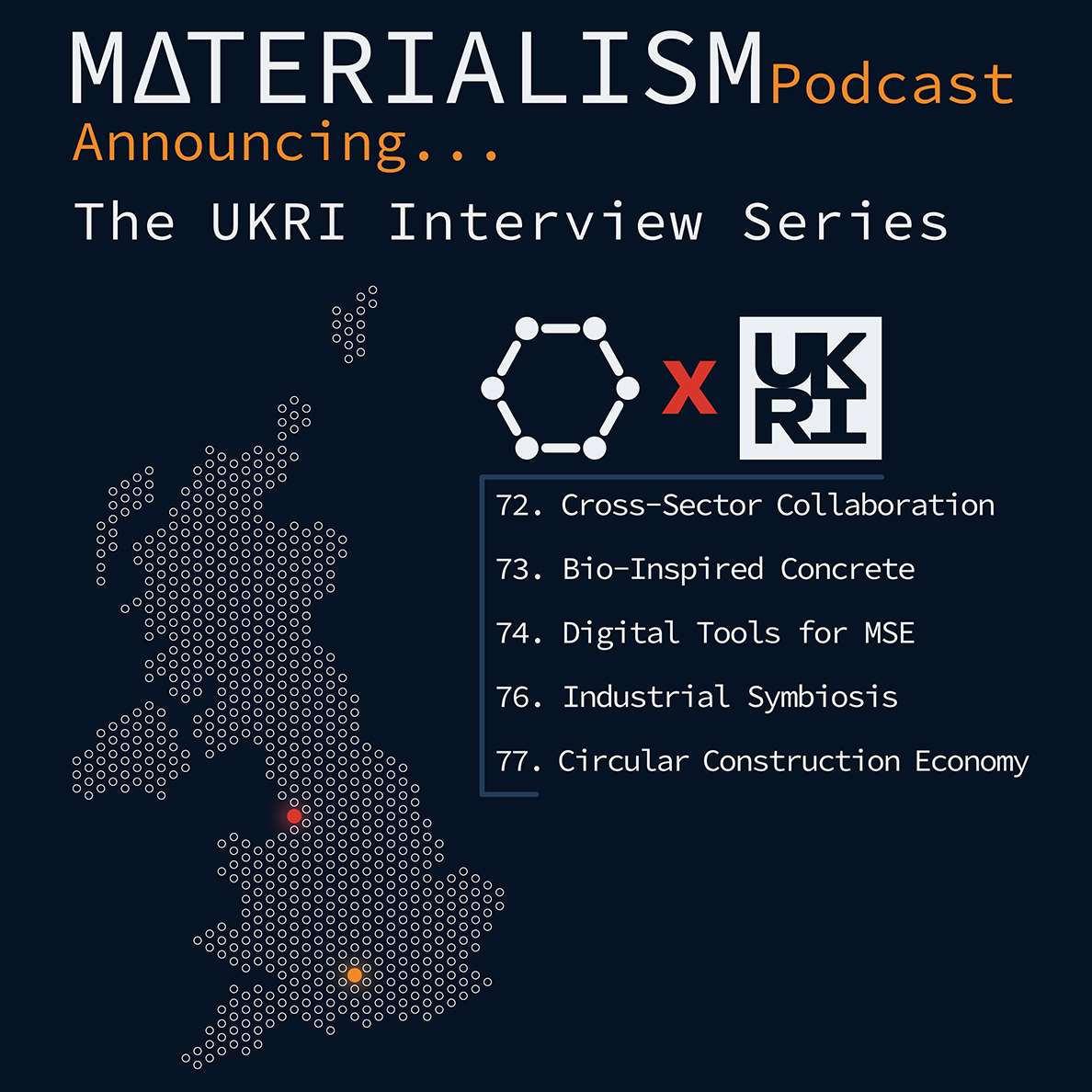
There are many benefits for the adoption of digital tools, including machine learning, in materials production and development. However, widespread use remains low in part due to a lack of knowledge and understanding of its applications. What is the state-of-the-art and how could the deployment of digital tools shape materials production in the future?
This episode was sponsored by Innovate UK Transforming Foundation Industries Challenge. This challenge is providing funding and support to create a cleaner, more efficient and more competitive sector that is fit for our future. Find out more by searching ‘Transforming Foundation Industries’ or goin...
Bio-Inspired Concrete

Concrete is an essential material in modern society. It is the second most used material after water and it’s demand continues to increase. However, at least 8% of global emissions caused by humans come from the cement industry. Therefore, reducing the environmental impact of cement and concrete production and use is critical in achieving a more sustainable environment. Biological systems are providing inspiration for solutions to this problem. In this episode, learn about two innovators that are developing materials that can reduce the environmental impact of construction.
This episode was sponsored by Innovate UK Transforming Foundation Industries Cha...
Importance of Cross-Sector Collaboration
The UK foundation industries (chemicals, ceramics, glass, paper, cement and metals) face common challenges to ensure they benefit in the transformation to a more sustainable future. Cross-sector collaboration is essential to share best practice and optimize use of energy and resources. The Innovate UK Transforming Foundation Industries Challenge has brought together these sectors to collaborate and accelerate innovation and one example project is Flue2Chem, which involves 15 partners in metals and chemicals industries with the goal of producing valuable materials from industrial greenhouse gas emissions. Why is cross-sector collaboration so important and how are the benefits being since today...
Automating Materials Discovery
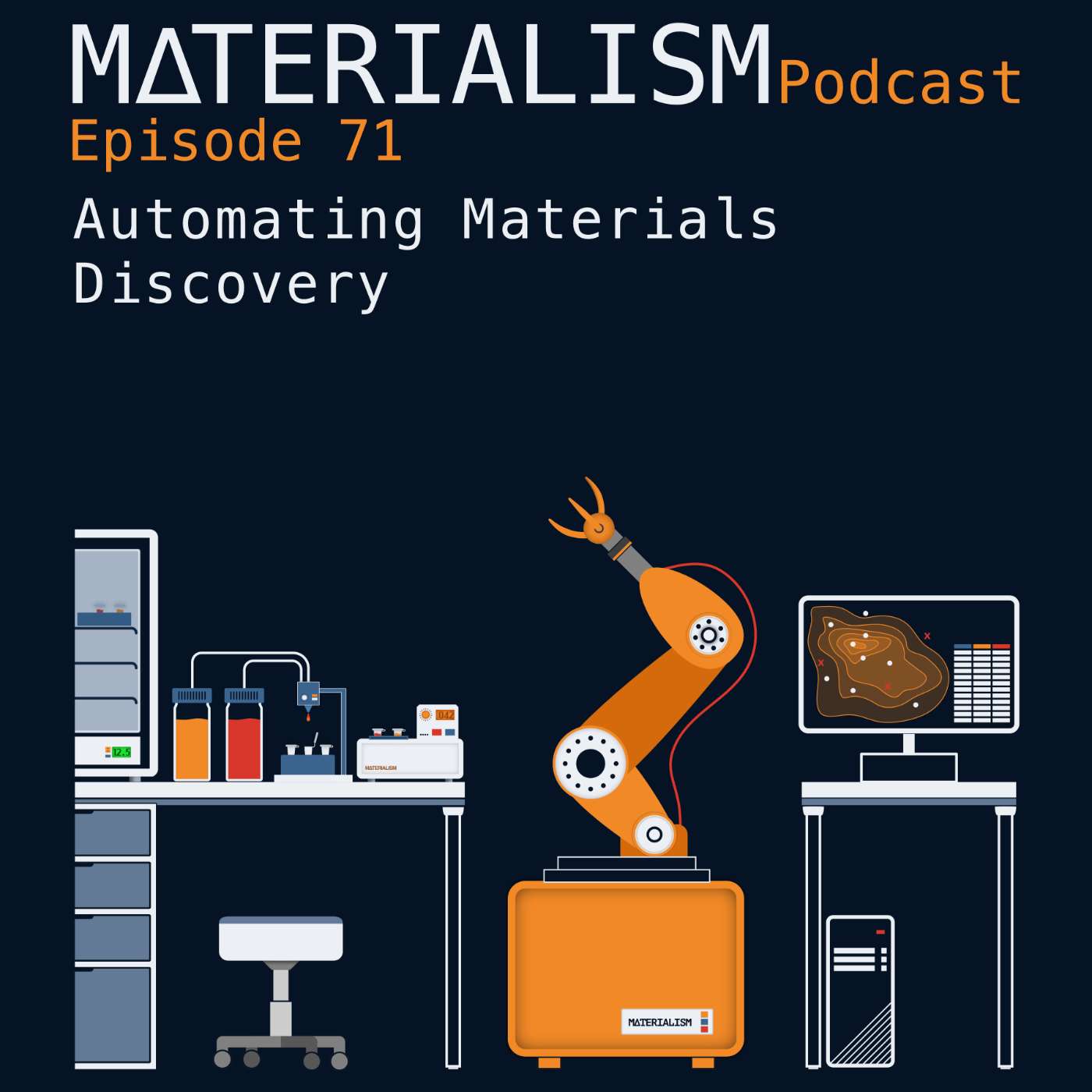
Autonomous labs are poised to revolutionize materials and chemistry research. Tools are both less expensive than they once were, and the techniques to use them have been developed. We chat with Andy Cooper of the University of Liverpool to learn how far we've come, what's left to do, and what we can expect going forward.
This episode is sponsored by Materials Today, an Elsevier community dedicated to the creation and sharing of materials science knowledge and experience through their peer-reviewed journals, academic conferences, educational webinars, and more.
Thanks to Kolobyte and Alphabot for letting us...
Nickel Superalloys at General Electric
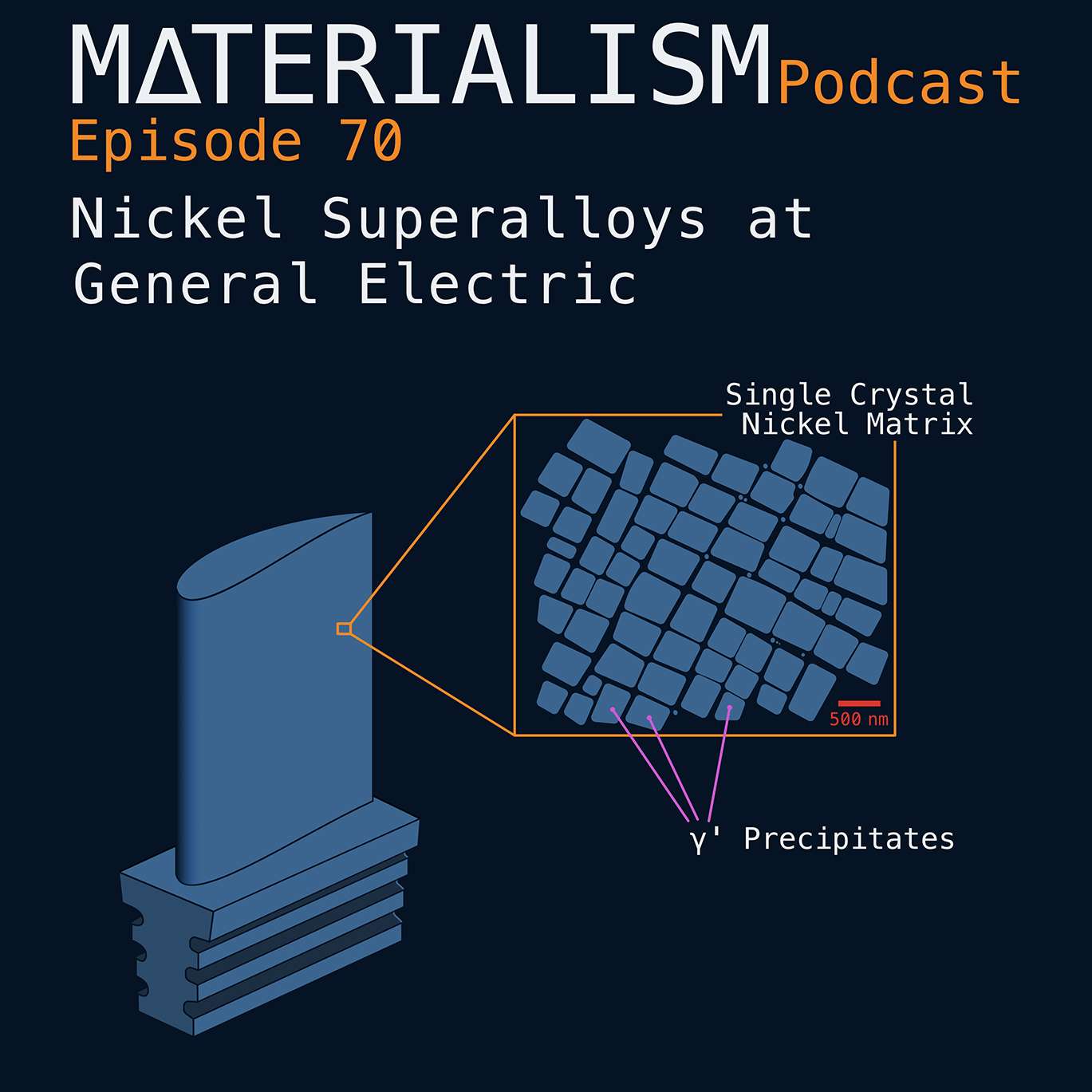
Modern engineers work in environments that most metals simply can't withstand. What do you do when you need a metal to go to incredibly high temperatures? You make an alloy. We take a dive into the history of these nickel "superalloys" to understand what makes them so super and how they are being leveraged to push innovation forward.
Interested in learning more? Check out these awesome resources from TMS:
Superalloys: A Primer and History [LINK] Superalloys Proceedings Archive [LINK]This episode is sponsored by GE, a leading company in a multitude of fields. Check out...
Manufacturing Monitoring at Gefran, Inc.
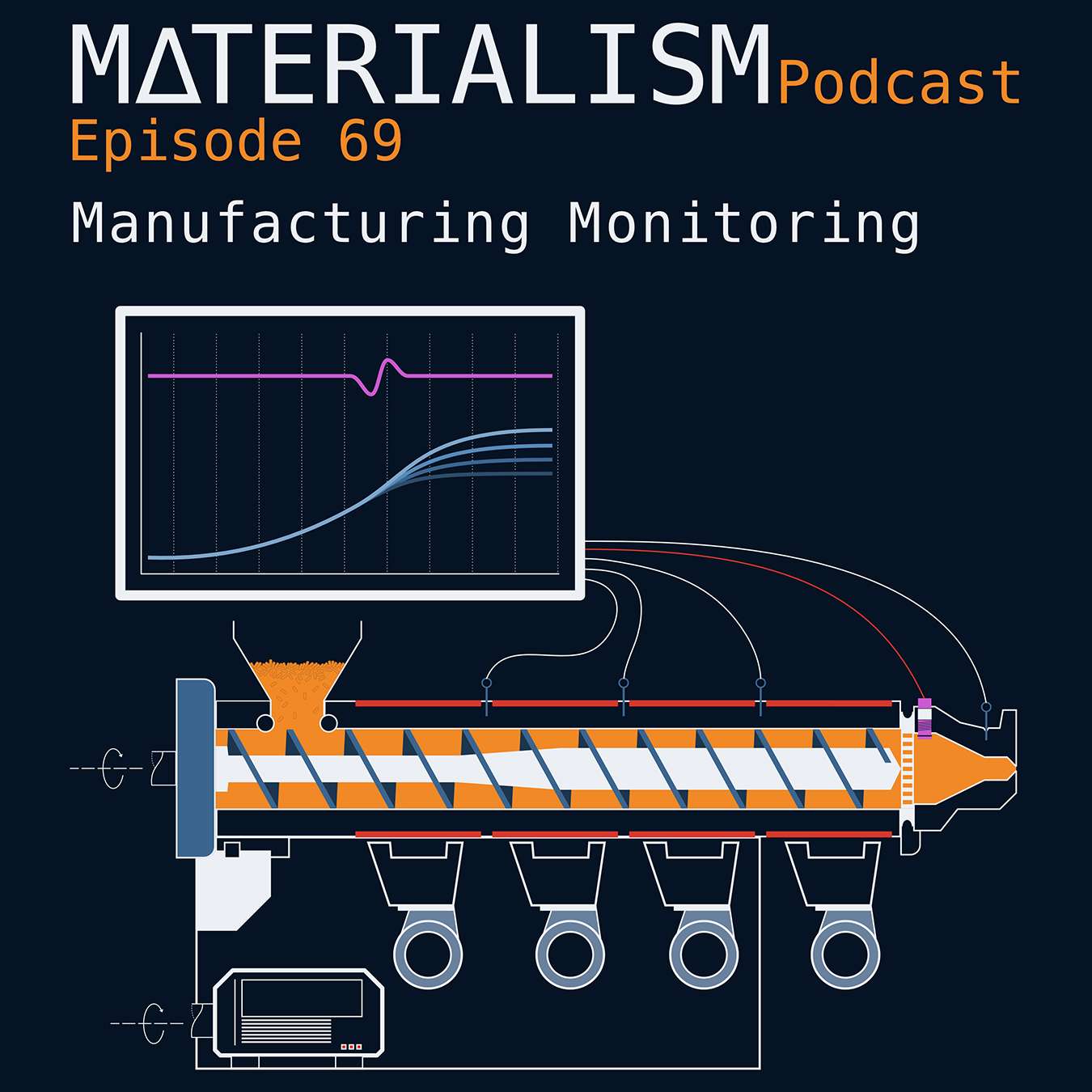
Manufacturing mistakes can be costly to both time and money but a large one can even injure or kill workers. The bets way to combat mistakes is to monitors every step of the process but when it comes to creating complex materials this isn't always so easy. Learn how the sensors used work and why they are so important to the process.
This episode is sponsored by Gefran, to learn more about their products and what they can do for you click the link here.
This episode is sponsored by Materials Today, an Elsevier community...
Thermal Spray Coatings at General Electric
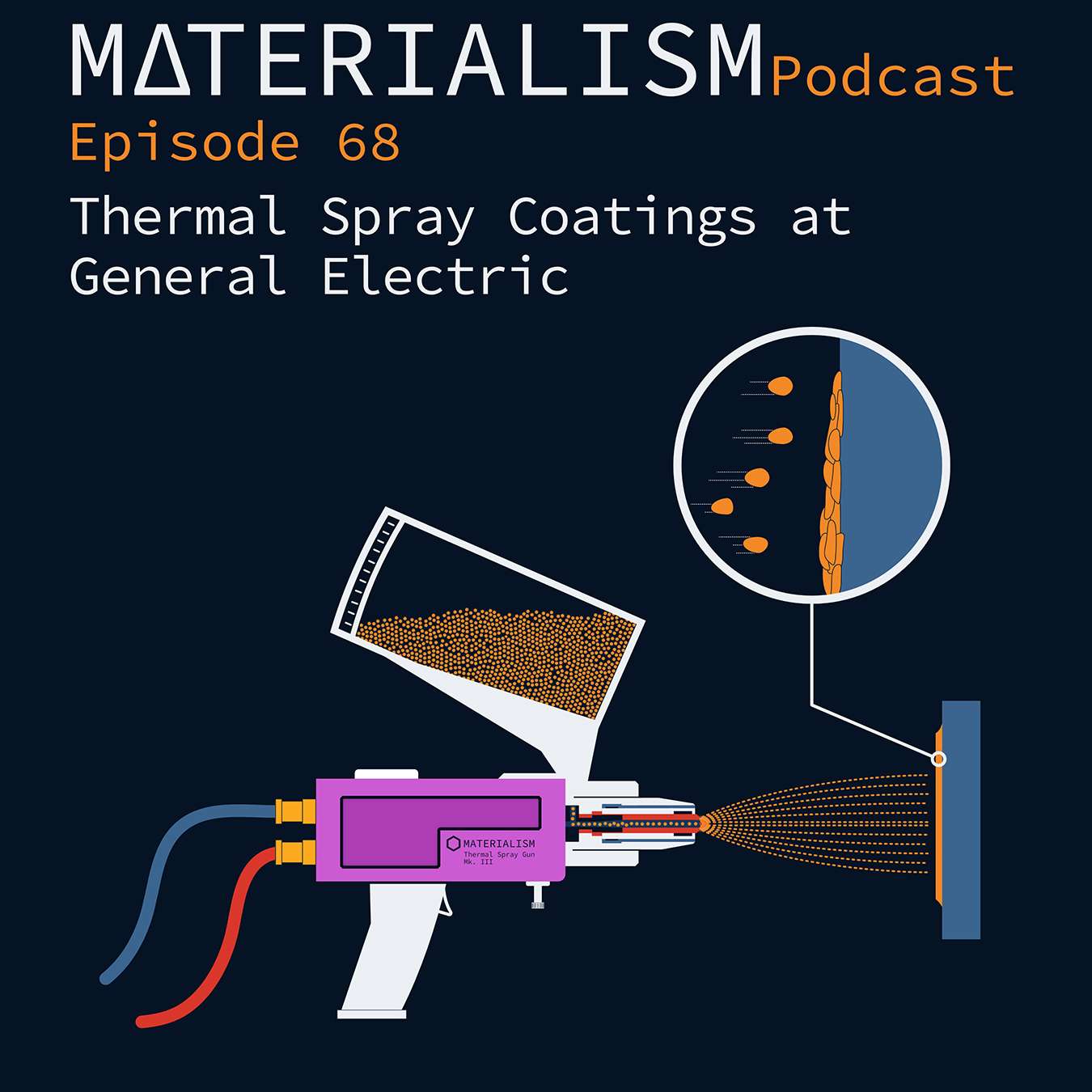
Learn what Thermal Spray is and how GE is leveraging it in their new projects. From the various types of ignition and feed material to new ways of bonding the coating this technology is constantly evolving at GE.
This episode is sponsored by GE, a leading company in a multitude of fields. Check out their research homepage here. Take a look at jobs here
This episode is sponsored by Materials Today, an Elsevier community dedicated to the creation and sharing of materials science knowledge and experience through their peer-reviewed journals, academic conferences, educational webinars, and...
